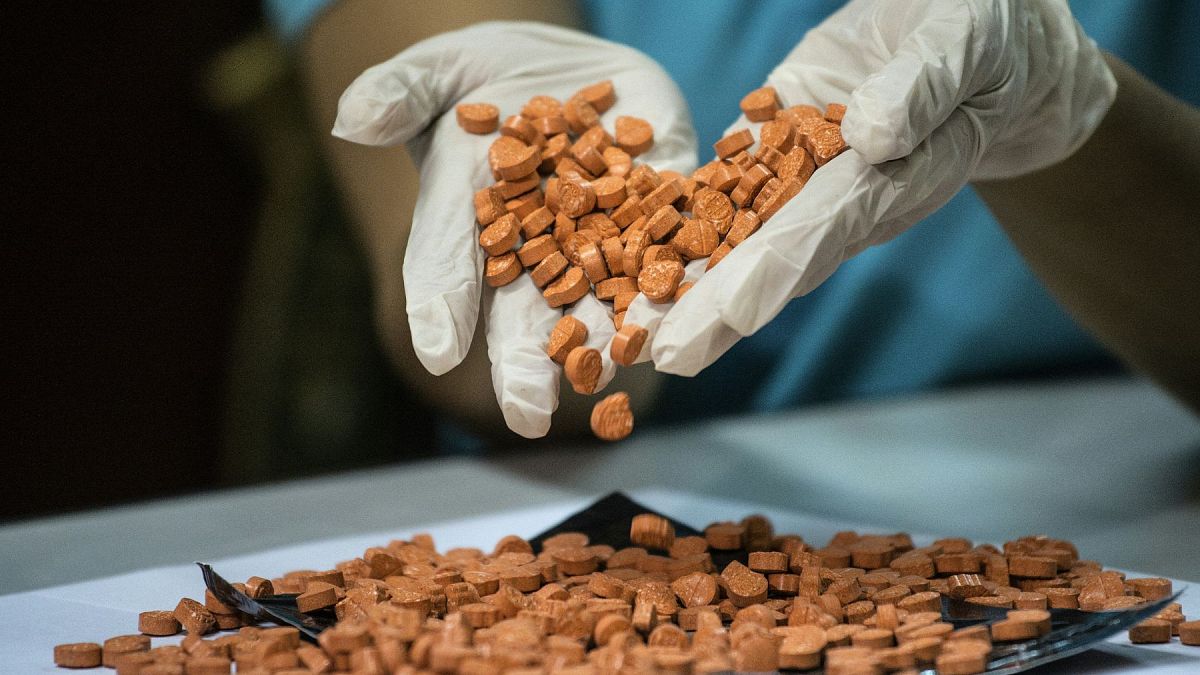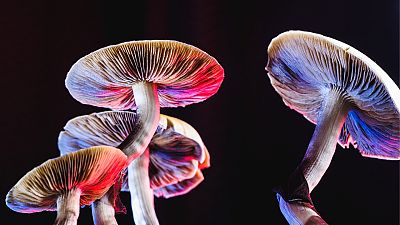It is now legal in Austria to prescribe MDMA and psilocybin to treat some mental health issues. Are other countries likely to follow suit?
Australia has become the world’s first country to regulate psychedelic drugs MDMA and psilocybin as medical treatments for conditions including PTSD, depression, alcoholism and eating disorders.
As of July 1, “psychiatrists can be authorised to prescribe products containing 3,4‑methylenedioxy‑methamphetamine (MDMA) or psilocybin for use in psychedelic-assisted psychotherapy to treat specific mental health conditions,” said Australia’s Therapeutic Goods Administration (TGA) in a statement.
MDMA is commonly known as ecstasy - a recreational drug - and psilocybin is the active ingredient in hallucinogenic mushrooms.
The decision to allow psychedelic drugs for therapy, which was revealed earlier this year, came as somewhat of a surprise to many; TGA had overruled the use of psychedelic drugs as recently as December 2021.
The Australian administration said their new direction followed a nearly three-year process and included extensive consultation with experts, adding that it acknowledged “the current lack of options for patients with specific treatment-resistant mental illnesses”.
How will the drugs be prescribed?
The TGA does “not expect widespread prescribing of MDMA or psilocybin” as the treatments will be limited to individuals with specific mental health conditions who have previously been resistant to other formally approved treatments; likewise, the prescription of the novel therapies will be preceded by a lengthy process.
To be able to prescribe MDMA or psilocybin, a psychiatrist will first have to be registered as an Authorised Prescriber (AP) under the TGA’s Authorised Prescriber scheme, which allows registered psychiatrists to prescribe medicines that have yet to be formally included in Australia’s register of therapeutic goods.
Yet, before seeking approval to be an AP, the psychiatrist must first obtain approval from a panel that evaluates applications for human clinical-trial work called the Human Research Ethics Committee (HREC).
Once approved by an HREC and the TGA, a clinician needs to provide the TGA with six-monthly reports on patient numbers and serious adverse effects.
The comprehensive reporting is expected to ensure ongoing monitoring and evaluation of the drug's usage and its impact on patients.
“As psychedelic-assisted therapies are not well established, the controls under the AP scheme will ensure the safe and appropriate use of MDMA or psilocybin. Psychiatrists will need to show they have the necessary training, competency and robust evidence-based treatment protocols that appropriately control the risks to patients,” said the TGA.
What’s the likelihood they’ll be coming to Europe?
Despite the stigma attached to mind-altering drugs and their technically illegal status in most countries around the world, the past few years have seen a considerable amount of research into their potential benefits.
David Badcock, CEO of UK-based Drug Science, says that following the announcement from Australia, the future is looking that bit brighter for such treatments being brought to other countries.
“In the last ten years or so, there’s been a huge reemergence of research into the field,” he explained.
“There’s a growing understanding among the medical community of the benefits of treatments like this. I’m hopeful this is the first positive change of many”.
In an article published by the European Commission last year, it was confirmed that a number of privately-funded research projects are responding to “the burgeoning interest from the scientific community” into psychedelic therapies.
It adds that “the endgame for many scientists in this area is to decriminalise psychedelics (both synthetic and natural) and establish safe protocols that will allow doctors and psychotherapists to harness the ‘magic’ in these compounds for medical purposes”.
Euronews Next asked Badcock exactly what that “magic” is, and why psychedelics are so effective for treating certain health conditions.
“Mental health is so complex, there’s never going to be one treatment for any one thing,” he said.
“But think about trauma-induced depression, for example, like childhood trauma. In order for the individual to understand the root cause of the issue they need to follow a path that unlocks that painful experience”.
According to Badcock, “some drugs - not exclusively MDMA and psilocybin, we’re researching the effects of substances like LSD and ketamine too - will take away that level of pain and enable patients to access and confront their trauma in a controlled setting”.
But we all know drugs are commonly used in a recreational setting too. So how do advocates for drug-based therapies justify exposing patients to substances that could potentially lead to addiction?
“MDMA and psilocybin aren’t especially addictive substances,” explained Badcock. “But you’re right - that’s the political backlash we face”.
“We have to bear in mind the therapies being trialled in Australia are done in an extremely controlled setting,” he added.
“Patients will undergo clinical assessment before it’s even considered as a treatment, and there are tight regulations that the psychotherapists involved must abide by”.
So does Badcock think Australia’s ruling will change things for the rest of the world?
“Australia’s decision means we’re going to have access to a wealth of information we haven’t had until now - namely, real trials and results across a range of patients,” he said.
“It’s our opportunity to gather evidence and ultimately elevate our research so that hopefully, treatments like this can become more widely available”.



